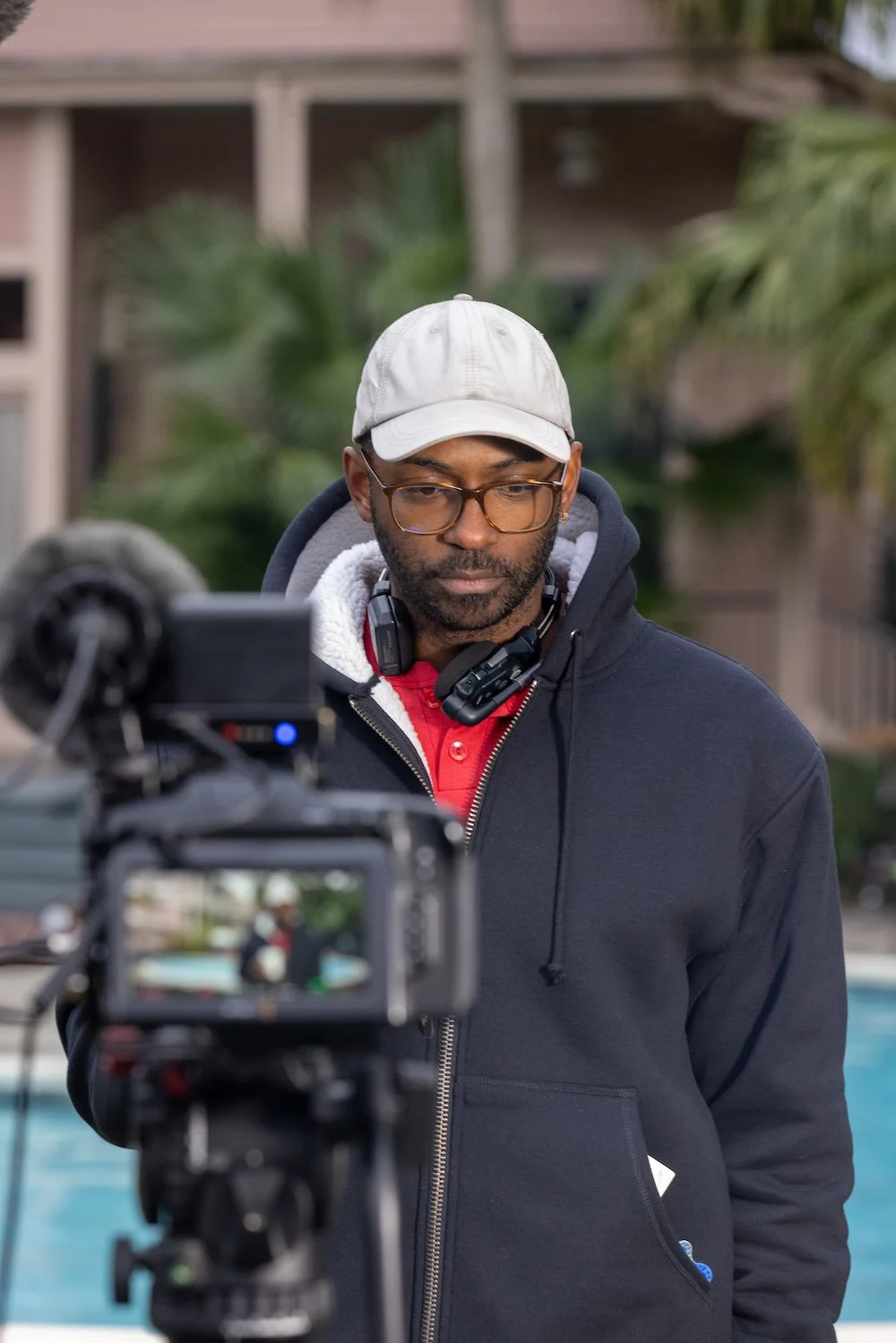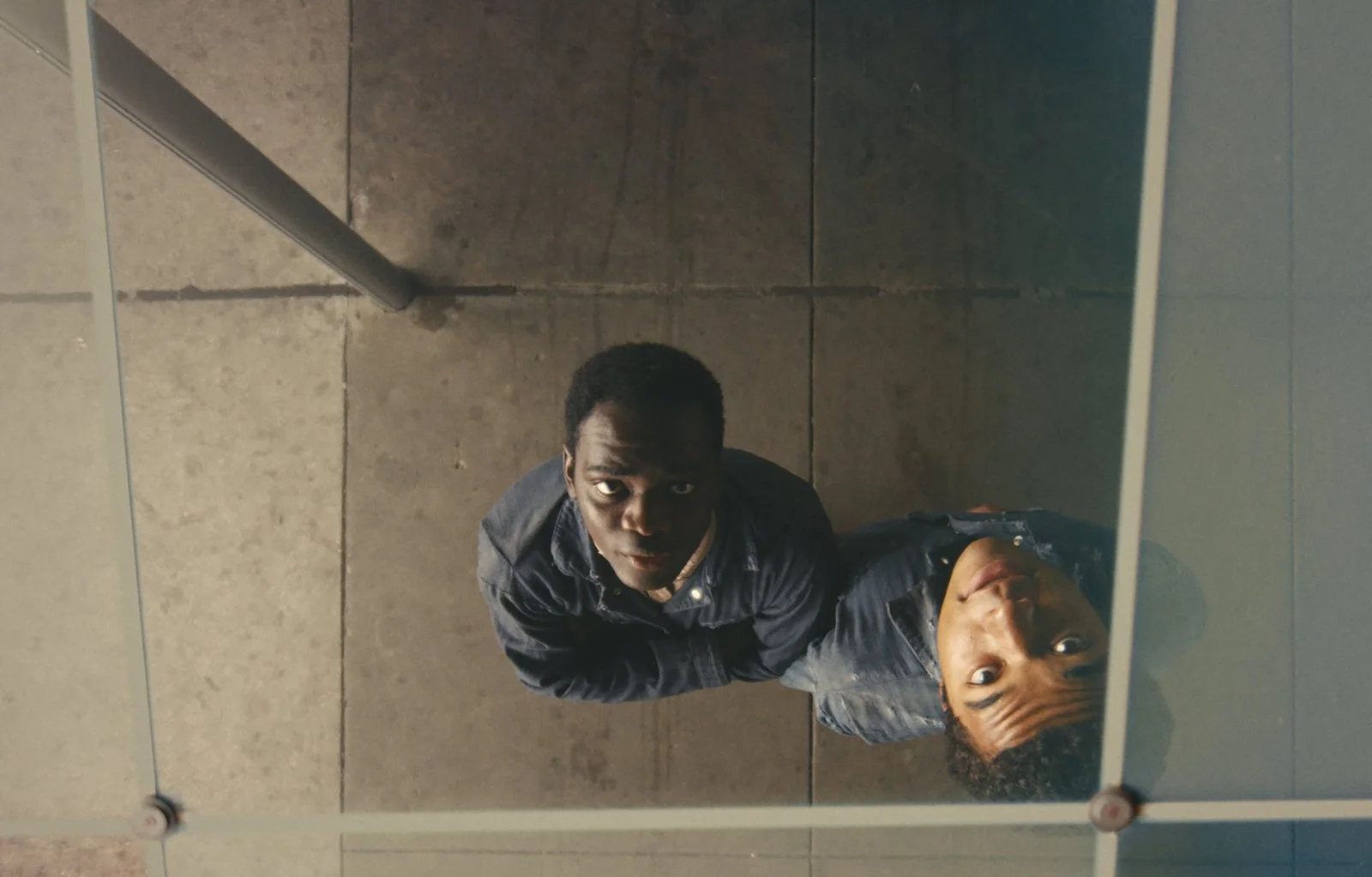‘Nickel Boys’ is up for Best Picture-Drama at the Golden Globes this year, among many other accolades its director and stars have been collecting along the way. I caught up with the three men during the London Film Festival where I got to watch the film which I credit with having changed my very DNA.
“Both narrative films and documentaries are fiction in a way”
Nickel Boys is that once-in-a-lifetime film which with its combination of narrative, poignancy in the moment and great acting and direction can actually change your very being when you watch it. I certainly felt that way on a brisk October morning, when I stepped out of the Curzon in London’s West End at the end of it and realized I would never view the world around me in quite the same way again.
The film feels so much like nonfiction and RaMell Ross is, after all, famous for his Oscar-nominated doc Hale County This Morning, This Evening. So I wanted to find out from the Black American, German-born filmmaker why that is. As we met up at the Golden Globes party in London, Ross said the above, and I’m of course paraphrasing as I would never record a party conversation.
In an interview a couple of days later, he explained further what he takes from each genre. “I don’t draw distinctions between the actual films but I understand the genre distinctions and the markers in each one. Documentary film just is this sort of space of truth and so it’s supposed to speak a language of journalism and investigation and of a certain one-to-one relationship with the actuality and momentum of the world and the camera.” That’s what it supposed to feel like, according to Ross, “though it rarely is, because the way a person is in the world with a camera changes that moment,” he adds. That is enough for Ross to call that also fiction, “or at least in the same Zeitgeist as fiction” according to the filmmaker.
“Fiction of course is a more curated one where you are looking for “documentary” moments,” he continues. In fiction, “you are looking for the realism that a documentary implies in the fiction space, so it’s an understandable divide because of the industries, but in terms of making films, I don’t really approach them differently — they should be far more integrated than they are.”
Shooting from the POV of a character as a way into a story
In Nickel Boys, the story of a friendship developing in the most unfriendly of places is told through the eyes of its protagonists — both Elwood’s (played by Ethan Herisse) and Turner’s (Brandon Wilson). This is one step ahead of the game for Ross, whose work has included his own invisible POV, as any good documentary filmmaker’s should. While watching Nickel Boys, we turn into the leading characters, seeing what they see, feeling what the feel. Well, almost, as I’m not male or Black, but at least for those two plus hours I viewed the world around as they would have.
Filmmaker RaMell Ross
I ask Ross if he was ever afraid that this bold choice, to shoot in the “first person” would be criticized. “I want to go back to the first part of your comment,” Ross says, referring to the preface of my question about his documentarian’s POV. “That POV is often lost to the universality of the image, so when people are making documentary films — we of course know, as people who watch a lot of films and think about them, that this is an essay on the way in which this person views this idea, etc — the way the images read, fundamentally is they remove authorship. They just appear to be from an objective, god-like prospective, regardless of how close they are on something or how wide they are on something.” Most people forget this while watching docs, Ross points out, and he finds that the “most terrifying thing about the camera, and [one that] has caused a lot of harm.”
“Whatever racist ideology is at the belly of countries or nations I think about ways to counter that with more aggressive authorship as a response,” he continues. “Which is trying to figure out ways to use the camera in ways that you know it’s a person of color’s perspective to sort of right the universality of our images previously.” With Nickel Boys, Ross has accomplished that mission, not only in a technical way but in a wondrously emotional manner that leaves the viewer of the film breathless with sensations and personal reactions.
Can you tell such an American story in a way that global audiences will get it?
I point out to Ross that he’s just answered the first part of the question, or rather addressed my comments about the filmmaker’s brilliant choice of shooting. He laughs, kindly and boyishly and says, “that was a little wordy, maybe?” about his reply. Nope, it was smart, and Ross is smart, and when later on I watch on social media a little video that one of the trades has shot of the filmmaker inside a DVD library, I realize he’s beyond smart — he’s brilliant.
But is Nickel Boys a film that requires of you to be American to truly immerse yourself into, I ask Ross. What I really mean to say is American, brilliant and Black but I haven’t tapped into my own words yet during the interview. “No, I don’t think so,” he answers, matter of fact, “because that would reduce the form of the film to one that wouldn’t allow for a more, I wanna say righteous vicariousness or more righteous re-embodiment for the viewer.” He continues to explain, as he can tell his interviewer remains a bit baffled, “I think that for those who aren’t American or that have a hard time adjusting to the visual language, I think that it is as much about them further letting go and not looking to read, or looking to judge, for lack of a better word, or critique — and more to be on the rollercoaster of experience.” It is exactly this letting go, after resisting the camera’s relentlessly personal POV at the very start of the film, that allows for perfect viewing of a stunning modern masterpiece of the seventh art.
Ethan Herisse and Brandon Wilson — stars in the making
It’s only appropriate to leave the famous last words to the film’s protagonists, Ethan Herisse, who plays Elwood and Brandon Wilson who plays his friend Turner at the Nickel Academy, the place that dives them both into a personal hell, so measuredly described by Ross in his film that what we fail to see, and only hear or imagine become more terrifying than anything he could have shown on the big screen.
Both Herisse and Wilson are my kind of people. I mean fashionistas, with the former having famously worn the above coat by Balmain on the red carpet of the NYFF. The latter wears his hotel slippers to our interview, and less than a month later, I find a British Vogue newsletter in my inbox raving about the new trend of wearing slipper-like shoes on the streets of London.
All three of us sit on the floor during our chat, as there are only two chairs in the room and this way is much more fun. Talk about remembering an interview and how the subjects made me feel! The warmth of that room, their kindness as they help me up off the floor at the end, carries me through the day and in the rain outside, I leap instead of walking around the London streets after our meeting.
Wilson confesses that he got cast from a self tape, where he recorded himself playing two of the longer scenes that his character Turner is in, including the “looking up” scene, as I call it, which has become a sort of symbol of the film and the image which most outlets use for their coverage of Nickel Boys. Herisse’s casting process was shorter than Wilson’s and he says “traditional, I sent the tape over and was fortunate to get a callback, which I did over Zoom.” Not too long after that was the “chemistry” audition with Wilson and Herisse’s agent told him in the middle of that call that he had gotten the job.
It is clear from speaking to the men that these two are going places, and their careers have just started in that upward trajectory that takes people all the way to the top of Hollywood stardom. It will be nice one day to say, “I knew them when, we sat on the floor of a hotel suite in London and chatted about life, fashion and cinema.”
The differences between them
I ask Wilson and Herisse how they differ from their characters, as often in casting younger actors, the filmmakers will tap naturally into the similitudes that unite them to their parts. Herisse jumps in, “for one, I think Elwood is braver, more involved and smarter— and that’s not being self deprecating in any way. I have a lot of respect for him especially as it pertains to the fire he holds in his political beliefs and his desire to be actively involved in the change he wants to see in the world.” He points to the difference between being fired up, as many of us are today thanks to social media, and “going out there and being actively involved and doing something and he’s the type of person that would and does.” Herisse vulnerably admits that those qualities don’t sit with him so easily. I would disagree, as his performance has already started to change the world.
Wilson points out that his co-star shares with his character what I point out is Elwood’s “unrelenting kindness.” And when I tell Wilson that he, as Herisse, shares his character’s charisma and magnetism, he is left a bit speechless. “We have very different circumstance, the character and I,” he says after thinking for a while, “some of these moments where his intent is kind of questionable” — you’ll have to watch the film to know when that is — “it’s hard to say if I would do the same in those circumstances, he grew up in a very different world — I got to visit that world for a moment and help bring that world to life.”
All images used with permission.


